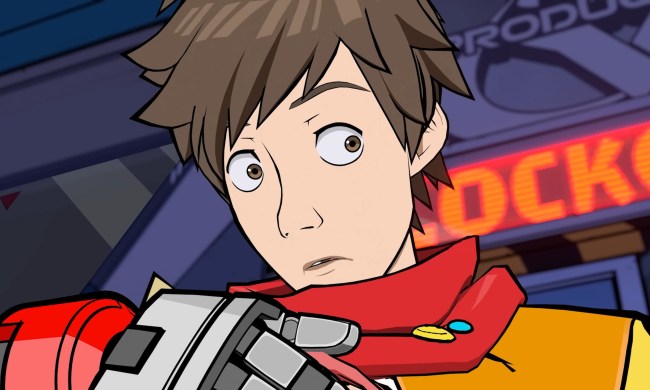
The post, which is framed as a letter from Spencer, doesn’t give a lot of insight into what’s next for Mojang or Minecraft. It confirms that Minecon, the not-quite-annual gathering of fans for the world-building survival/creation game, will return in 2015. Spencer also makes it clear that Minecraft‘s cross-platform existence won’t end now that Mojang is technically in the same family of Xbox teams as Forza maker Turn 10 Studios and Halo lead 343 Industries.
“This is a game that has found its audience on touch devices, on phones, on iPads, on console, and obviously its true home, on PC,” Spencer says in an accompanying video. “Whether you’re playing on an Xbox, whether you’re playing on a PlayStation, an Android, iOS device … our goal is to continue to evolve and innovate across all of those platforms.”
In other words, don’t worry PlayStation users. Minecraft only just came to PlayStation 4 (and Xbox One), and it doesn’t appear to be going anywhere.
Related: Here’s what happens when you rebuild the first Star Wars movie in Minecraft
In a similar post on Mojang’s website, titled “Yes, we’re being bought by Microsoft,” the studio’s Owen Hill confirms the previously rumored $2.5 billion selling price. He also has some things to say about the reasoning behind the sale, not the least of which is the meteoric growth that saw Minecraft transform “from a simple game to a project of monumental significance.” Mojang founder and Minecraft creator Markus “Notch” Persson never imagined or intended for his blocky, little game to get so big.
As for the question of why Microsoft specifically? Here’s what Hill has to say: “There are only a handful of potential buyers with the resources to grow Minecraft on a scale that it deserves. We’ve worked closely with Microsoft since 2012, and have been impressed by their continued dedication to our game and its development. We’re confident that Minecraft will continue to grow in an awesome way.”
Hill also confirms that Persson, along with fellow Mojang founders Carl Manneh (CEO) and Jakob Porsér (designer), will be leaving the company. It’s not clear what their next move is, but Hill’s words suggest a possible collaboration. “We don’t know what they’re planning. It won’t be Minecraft-related but it will probably be cool,” he writes.
Persson echoes Hill’s sentiments in a farewell letter of his own, posted on Notch.net and subsequently shared on Pastebin after the Internet crashed the Persson’s personal website.
“I don’t see myself as a real game developer. I make games because it’s fun, and because I love games and I love to program, but I don’t make games with the intention of them becoming huge hits, and I don’t try to change the world,” he writes. “Minecraft certainly became a huge hit, and people are telling me it’s changed games. I never meant for it to do either. It’s certainly flattering, and to gradually get thrust into some kind of public spotlight is interesting.”
He then goes on to tease some of what might be happening next. “As soon as this deal is finalized, I will leave Mojang and go back to doing Ludum Dares and small web experiments. If I ever accidentally make something that seems to gain traction, I’ll probably abandon it immediately.”
Minecraft launched in November 2011, but it first came to PC as an alpha release in May 2009. The game’s public, user-supported development process turned out to be a catalyzing force within the development scene, its success spurring the growth of initiatives like Steam Greenlight and the ever-rising wave of “Early Access” releases. Games are built for people to play them, the reasoning goes, so why not give the players some insight into how foundational choices are made, and perhaps let their feedback influence the course of those choices? In many ways, it’s a whole new world for game developers.
We’ll see what happens now that Mojang is an agent of Microsoft. Many questions linger. The latest rumors surrounding the acquisition suggested that Microsoft might primarily be interested in leveraging Minecraft‘s success in the mobile space to help its struggling Windows Phone and Surface tablet divisions (the game is currently only available on Android and iOS).
We’ll have to wait and see. This somewhat vague passage from the Xbox Wire post may be the most telling bit about where Microsoft is headed with Mojang and Minecraft…
The Minecraft community is passionate and diverse, ranging across all ages and demographics. We respect the brand and independent spirit that has made Minecraft great, and we’ll carry on the tradition of innovation to move the franchise forward. Our investments in cloud, Xbox Live and mobile technology will enable players to benefit from richer and faster worlds, more powerful development tools, and more opportunities to connect with the Minecraft community.
What do you make of the news?


